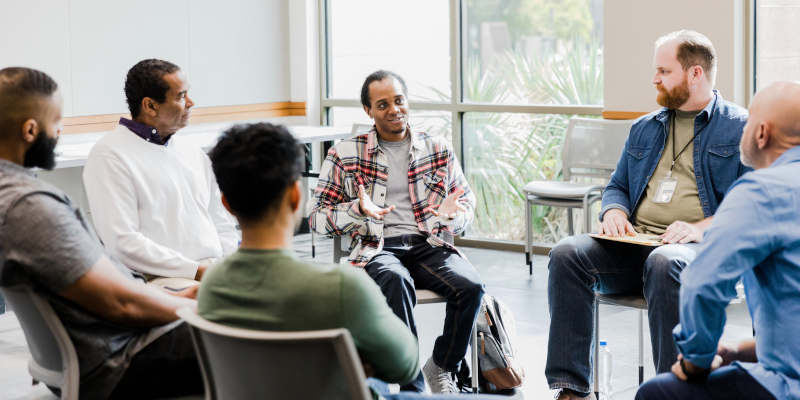Mental health is an important aspect of overall well-being, yet many men struggle to talk about their problems, let alone seek out therapy. Society’s expectations, cultural standards, and personal insecurities all contribute to this silence. However, breaking down these obstacles is critical for leading healthier and happier lives. At Georgia Family Crisis Solutions, we’re celebrating Men’s Mental Health Awareness Month by exploring why some men struggle to talk about mental health and how we can change the narrative.

- Societal Expectations and Masculinity Norms: From an early age, males are taught to “be strong” and “not show weakness.” This leads to a belief that expressing emotions is unmanly, resulting in bigger issues that could seriously impact mental health. Additionally, media and cultural narratives foster the notion that males must be rugged and self-sufficient.
- Fear of Judgment: Many men are concerned about appearing weak or vulnerable, which leads to them avoiding conversations where they discuss concerns they might have about family, work, or other issues. In other words, the stigma around mental health causes seclusion rather than seeking help through therapy or discussion groups.
- Lack of Emotional Vocabulary: Some males struggle to express their emotions since they were never encouraged to do so. Instead of communicating concern or grief, men may express their feelings through anger, impatience, or substance use.
How To Change the Narrative
- Normalize discussions about men’s mental health.
- Encourage open conversations at home, at work, and in social settings.
- Demonstrate that seeking help through therapy is a show of courage, not weakness.
- Highlight positive male role models who promote mental wellness.
By breaking the silence about men’s mental health, we can create a world in which getting help is seen as a sign of strength rather than weakness. If you’re in the Central Savannah River Area and you are ready to schedule a therapy appointment, contact our team to book now.

